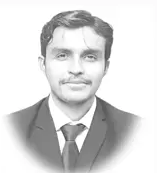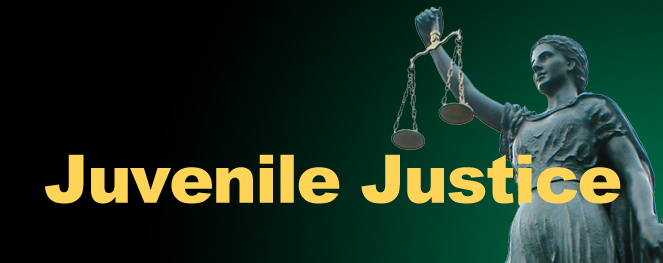
The USA has the most indispensable and invaluable juvenile justice law in the shape of the Juvenile Justice and Delinquency Prevention Act 1974. It gave a well-refined monitoring and coordination mechanism to the criminal justice systems of the rest of the world. Light must be shed on comparison of section 206 of Juvenile Justice and Delinquency Prevention Act 1974 of the USA with Section 10 of Juvenile Justice System Act 2018 regarding formation of coordinating council and committee, so that suggestions could be proposed to refine Pakistan’s monitoring and juvenile justice Committee mechanism.
The government as well as the judiciary should revise the whole act by increasing the number of members of the Juvenile Justice Committee. Representation should also be given to members of national and provincial assemblies. There must be a comprehensive mechanism of submitting a report on activities and contributions of the committee within a defined stipulated time. There must be addition of health specialists, sport specialists, doctors, psychologists, and police officers, not below the rank of S.P. Federal and provincial law ministers should also be included. There must be a presence of federal and provincial bureaucracy in the juvenile committees at federal and provincial levels
No doubt, the US juvenile justice system has one of the most refined and well-established coordinating and monitoring mechanisms to prevent juvenile delinquency, fair implementation of juvenile laws and comprehensive monitoring. A high-level council is established in the US Juvenile Act in which all direct and indirect power-holders are added for better working. Section 206 of the Juvenile Justice and Delinquency Act of 1974 Justice under the sub title of “Coordinating Council on Juvenile Justice and Delinquency Prevention” paves the way for setting up a high-level council. Twenty (20) members are included in the council: ten legal practitioners or lawyers with extensive experience in juvenile justice irrespective of political affiliation, three members appointed by the Speaker of the House of Representatives after consultation with the minority leader of the House of Representatives, three members appointed by the majority leader of the Senate after consultation with the minority leader of the Senate, three members appointed by the President, and one member appointed by the Chairman of the Committee on Indian Affairs of the Senate.
On the other hand, section 10 of the Juvenile Justice System Act 2018 of Pakistan sets up a “Juvenile Justice Committee” in which only four members are added: one Judicial magistrate with powers of section 30, one district public prosecutor, one local bar member with 7 years’ standing in advocacy, and one probation officer or social welfare officer not below 17 grade. The four-member committee is supposed to perform multiple functions at the same time such as disposal of cases through diversion upon referral from police, prosecution and juvenile court. The core duties of the committee are inspection of Observation Homes and Juvenile Rehabilitation Centres for welfare and social reintegration of juveniles. The committee also enjoys powers of a sessions judge.
America gave representation to all policy makers, legislative houses, the head of state and other stakeholders under the Juvenile Justice and Delinquency Prevention Act 1974 who can work effectively for reformation of juvenile offenders by keeping a stern check and balance on Federal juvenile delinquency programmes, activities and much more. On the other hand, Pakistan’s Juvenile Justice Committee is not more than a formality. It cannot even perform its wide functions following the scope of section 10 of Juvenile Justice System Act 2018 because of an insufficient number of members.
For the last two years, I have not seen the committee perform its functions in the juvenile courts of Lahore and other districts. I have not seen even a single report of the committee regarding its progress, working, and contributions for juveniles. It is really strange that there is not even a single section or subsection in the Juvenile Act of Pakistan regarding submission of quarterly or yearly reports to concerned authorities. So, Pakistan’s Juvenile Act- having only 25 sections- does not meet the exponential changes and needs of the time as there is not even a single doctor, physiologist or psychologist as a member in the JJC for report preparation regarding physical and psychological aspects of juveniles.
The government as well as the judiciary should revise the whole act by increasing the number of members of the Juvenile Justice Committee. Representation should also be given to members of national and provincial assemblies. There must be a comprehensive mechanism of submitting a report on activities and contributions of the committee within a defined stipulated time. There must be addition of health specialists, sport specialists, doctors, psychologists, and police officers, not below the rank of S.P. Federal and provincial law ministers should also be included. There must be a presence of federal and provincial bureaucracy in the juvenile committees at federal and provincial levels.
————-
The writer is a Lahore-based practicing lawyer and human rights activist. He can be reached at ch.changezi.sandhu111@gmail.com





